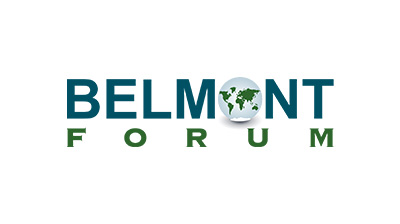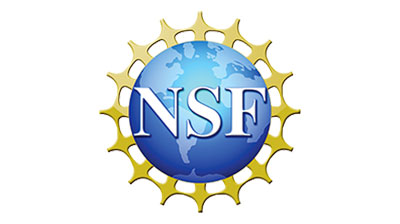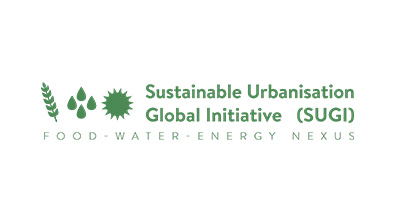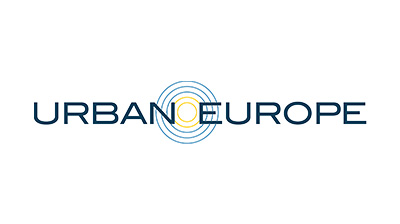
IN-SOURCE: Sustainable Urbanisation Global Initiative
As cities across the globe confront rapid change, they face common metabolic challenges to provide food, water, and energy (FWE) supplies, and to ensure healthy, socially balanced, and economically productive communities. In this context, governments, utilities, developers, investors, and other decision-makers need tools to identify, quantify, and visualize cross-sectoral and cross-media impacts to FWE systems from various decisions—from urban development strategies to carbon dioxide mitigation/adaptation plans to FWE infrastructure investments.
The IN-SOURCE project from the Sustainable Urbanisation Global Initiative (SUGI) will develop a shared urban data and modeling framework to help cities analyze and characterize FWE systems and nexus interrelationships. Shaped by urban stakeholder requirements, this framework will utilize a common urban 3D data model applicable to regions and cities in Europe and the United States.
The IN-SOURCE modeling framework will: (a) simulate impacts of land use, climate change and decentralization of FWE supply infrastructure in cities with different densities and under multiple constraints in order to ensure adequate energy, water, and food distribution and storage capacity; (b) configure alternative urban and regional scenarios toward integrated carbon neutral and sustainable infrastructure, based upon decentralized and increasingly autonomous FWE supply; and (c) analyze scalability and transferability of prototype solutions to other cities.
MORE INFORMATION ON PROJECT UPDATES
Fast Facts
- IN-SOURCE: Integrated analysis and modeling for the management of sustainable urban food, water, and energy resources
- Project Duration: 2018–2021
- Website: jpi-urbaneurope.eu/project/in-source/
- Budget: 1.518.657€
- Partners: Hochschule für Technik Stuttgart, New York Institute of Technology, AIT Austrian Institute of Technology, City University of New York, Landkreis Ludwigsburg, Alpen-Adria Universität Klagenfurt, bw-engineers GmbH
Project Consortium
| Main Applicant: HFT | University of Applied Sciences Stuttgart (HFT) – Centre for Sustainable Energy Technology Research | Germany | BMBF | Ursula Pietzch (Project Manager) ursula.pietzsch@hft-stuttgart.de Prof. Dr. Volker Coors volker.coors@hft-stuttgart.de |
| Partner 2: LKR | Landkreis Ludwigsburg | Germany | BMBF | Dennis Fricken |
| Partner 3: BWE | BW Engineers | Germany | BMBF | Alfred Helble ah@ah-consult.com |
| Partner 4: AIT | Austrian Institute of Technology (AIT) – Center for Energy (GmbH) | Austria | FFG | Dr. Ernst Gebetsroither-Geringer ernst.gebetsroither@ait.ac.at |
| Partner 5: UNI-KLU | Alpen-Adria Universität Klagenfurt-Institute of Social Ecology (SEC) | Austria | FFG | Prof. Dr. Karlheinz Erb karlheinz.erb@boku.ac.at |
| Partner 6: CUNY | City University of New York – CUNY Institute of Urban Systems and CUNY Energy Institute | USA | NSF | Prof. Ahmed Mohamed, Ph.D. amohamed@ccny.cuny.edu |
| Partner 7: NYIT | New York Institute of Technology | USA | NSF | Prof. Ziqian Dong, Ph.D. ziqian.dong@nyit.edu |
Objective
- Development and application of tools for case studies in order to quantitatively assess the predicted impact of changes in urban land use due to population, climate change, the energy transition and the challenges of providing a truly resilient infrastructure
Approach
- Using a bottom up approach to model urban system development, combining aggregated results with large scale (mainly regional, up to national) system models
- Involving urban stakeholders throughout the process, including generating indicators and data, developing tools to model and visualize the impacts and contributing to shaping strategies
- Considering urban challenges in very different case studies and thus improving the transferability of the local results to global urban areas
Expected Results and Impacts
- CityGML Application Domain Extensions (ADE) will be made available as an open specification, allowing any interested institution to adopt it and develop data resources in a shared data model
- Stakeholder involved as working consortia for collaborative planning of local FWE infrastructure projects
- Creation of shared urban data and modeling framework with specialized tools for applications in food, energy, and water interactions
- Methodology and software tool set will be made available for use by further cities and regions
MORE INFORMATION ON PROJECT UPDATES
Sustainable Urbanisation Global Initiative (SUGI)/Food-Water-Energy Nexus
The Sustainable Urbanisation Global Initiative (SUGI)/Food-Water-Energy Nexus is a call jointly established by the Belmont Forum and the Joint Programming Initiative–Urban Europe. The cooperation was established in order to bring together research and expertise across the globe to find innovative new solutions to the food-water-energy challenge.

Sponsors



